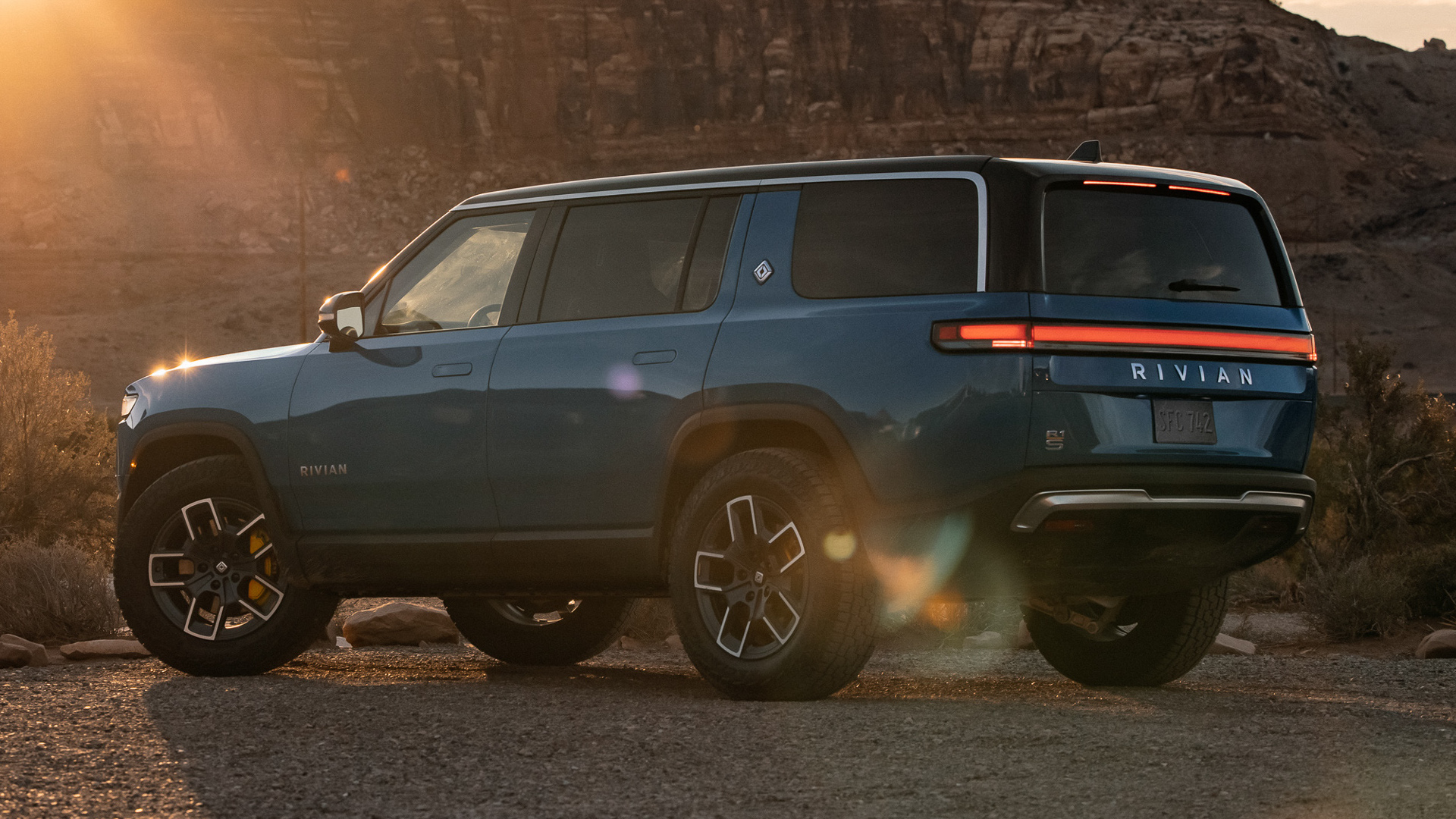

Over the past year, carmakers have cut their EVs’ prices as demand stumbles amid a declining economy. Tesla led the way with deep discounts, before the likes of Ford and Lucid followed suit—but Rivian remained steadfast. Now though, Rivian’s prices are finally budging, as the electric pickup and SUV maker has chopped $3,100 off its base models on the runup to the debut of its more affordable R2.
The price cut was observed by Automotive News, which reports the cheapest R1T and R1S with 270-mile ranges used to start at $74,800 and $79,800 delivered, respectively. Now, those models start $71,700 and $76,700, and Rivian has introduced new trims with 315 miles of range at the former base prices. Both remain eligible for $3,750 in federal tax credits, or $7,500 for leases, which now reportedly cost as little as $536 per month.

Rivian is believed to be reacting to the same EV demand slip as the rest of the industry. Its nature is widely debated; some characterize it as a true decline, while others chalk it up as a plateau or insist there’s no demand problem. However, it’s clear automakers are reacting to something, and that something is causing a price war.
It’s also pushing them to explore cheaper EVs, with Ford forming a “skunkworks” to stave off Chinese EVs that even Tesla’s CEO Elon Musk fears will “demolish” the western car industry. Tesla has also claimed to be working on a $25,000 EV to debut soon, though Musk previously suggested such a car could be on the market by 2023. Now, Reuters reports that model won’t be produced until at least June 2025.
On Rivian’s front, registration data shows that deliveries nearly tripled in 2023, though both the R1T and R1S have become eligible for leasing in the last three months. Rivian is expected to further court lower budgets by offering an economical LFP battery like those used in its vans. This could coincide with a rumored R1 refresh that’s expected to bring improved efficiency and a range-topping, 1,000-horsepower “Ascent” model.

Then there’s the R2, which will debut March 7. It’s expected to be a smaller, cheaper SUV that’ll muscle in on a market currently led by the Tesla Model Y. It’ll be Rivian’s volume seller, but probably not until 2026. In the meantime, the company will rely on sales of its R1 and increasingly accessible commercial vans to tide it over. And who knows, maybe that Rivian sports car could still see the light of day, eventually.
Got a tip or question for the author? You can reach them here: james@thedrive.com